
views
Dietary Changes
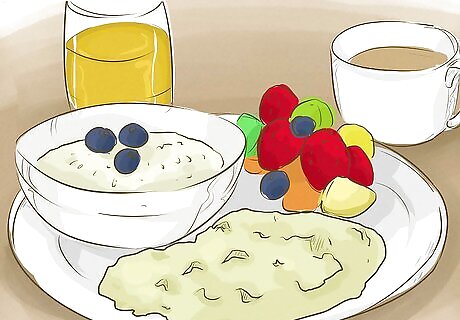
Eat a healthy breakfast every morning. You should have a goal of eating breakfast every single morning, even if you're not feeling hungry or are running out of time. Eating breakfast will not only give you more energy in the mornings, but it has been shown to lower stress. You shouldn't eat anything too greasy or heavy; just eat enough to make yourself feel powered up and alive. Here are some great foods to eat: A bowl of cereal Oatmeal Hard-boiled eggs Greens like spinach, kale, or celery Lean turkey or ham Berries, apples, or bananas
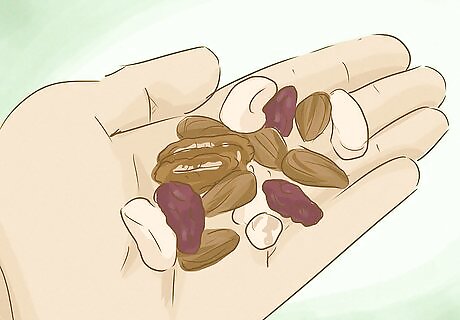
Eat every 3-4 hours. Even if you have an incredibly busy schedule, you can always take a minute to eat a snack, especially if you have one on hand. Instead of eating three big meals that leave you stuffed, have three medium-sized meals along with two snacks, one in between breakfast and lunch, and one between lunch and dinner, and see how much your energy levels improve. If your three meals constitute the only food you eat all day, then you will experience a dip in your energy level as you approach your next meal. Your snacks should be healthy, consisting of a mixture of carbohydrates, protein, and healthy fats. Nuts or berries make a great snack. Have yogurt with granola. Have a small piece of chocolate. You'll get an endorphin kick and will get a tiny boost of energy from the small amount of caffeine in it.
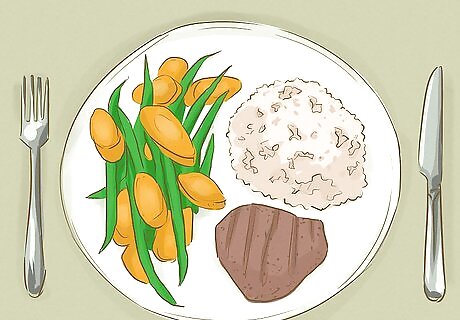
Avoid heavy meals. Breakfast should be your heaviest meal of the day, lunch should be your lightest, and dinner should be medium-heavy. You'll need a bigger breakfast to fortify yourself throughout the day, a smaller lunch to keep yourself from feeling sluggish or lethargic around lunchtime, and a medium-sized dinner to give you sustenance and to keep you from waking up early because of hunger. Your meals should have a mix of carbohydrates, proteins, and fruits or vegetables, and shouldn't be so heavy that they drain your body of energy as it tries to digest all that you've eaten.
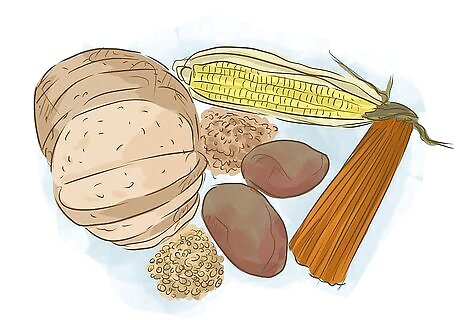
Eat more fiber. Fiber enters your bloodstream at a slower and steadier pace than carbs do, so they end up giving you more energy throughout the day. When you're choosing a snack option or deciding what to have for lunch, you should consider eating some foods that are known for being high in fiber. Here are some foods to try: Raisin bran A multigrain tortilla Black beans Apples Whole-wheat spaghetti

Eat those Omega-3s. They are found in fatty fish, walnuts, and canola oil, and they help keep your brain cells healthy and make you feel mentally alert. Try to eat fish at least once every day or two and snack on walnuts whenever you have the chance.
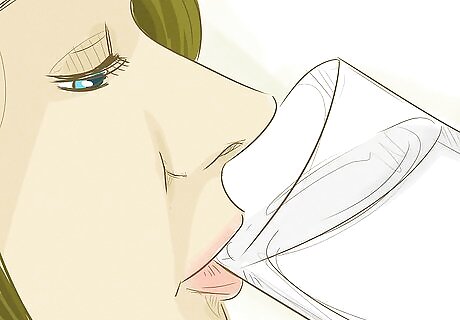
Drink lots of water. It's important to stay hydrated throughout the day and to drink at least 10 8-oz. glasses of water. Even mild dehydration can lead you to be fatigued, so wherever you go, make sure to bring a water bottle, or hit up the water fountains as often as you can. You can also up your water intake by eating more foods that contain water, such as carrots, yogurt, oranges, and grapefruit. Remember that alcohol and caffeinated beverages can make you dehydrated, so make sure to drink extra water when you are drinking these beverages.
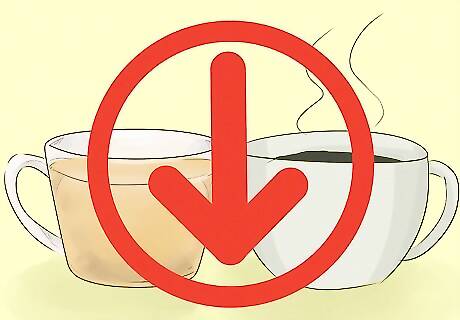
Limit your caffeine intake afternoon. Though caffeine can really boost your energy levels a few hours after you drink it, if you have caffeine afternoon or even in the evening, it will disrupt your sleep. Even if you're feeling very tired in the late afternoon, try to fight the urge to have more caffeine, or you will be tossing and turning all night and will feel even more tired the next day. And what will you want after a night of caffeine-induced restlessness? More caffeine. That's how people get addicted. Even switching from coffee to black or low-caffeine tea can have a positive impact on your energy levels.
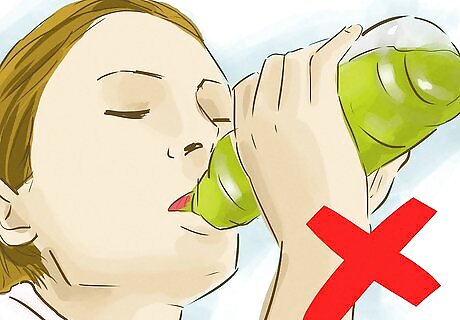
Avoid energy drinks. Energy drinks can be a quick fix if you have to pull an all-nighter after an exam or need the energy to go partying with your friends, but these sugary drinks are not good for your mind or body. After just a few hours, you will feel severe energy come down, may experience bad headaches, and will feel jittery and generally unpleasant. If you really like these drinks, you can have them in case of an absolute emergency, but try to avoid them on the whole.
Sleep Routine Changes
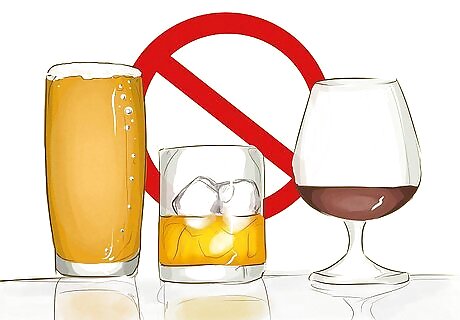
Avoid alcohol before bed. Though you may like to wind down with a glass of wine, alcohol actually disrupts your sleep cycle. While alcohol may make it easier for you to fall asleep at night, it will also make you have a more shallow sleep and will make you more likely to wake up throughout the night. Make sure to stop drinking alcohol at least 2-3 hours before you go to bed.
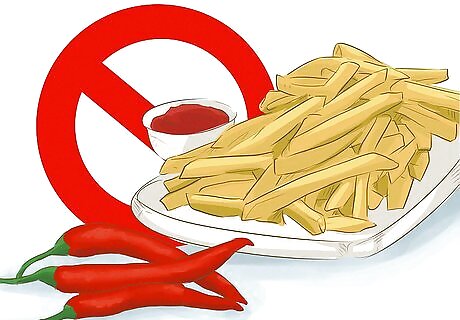
Avoid spicy or heavy foods before bed. You should eat dinner at least 2-3 hours before bed and have a light, healthy snack afterward if you're really craving one. But you should avoid any foods that are extra spicy or extra heavy or creamy, or your body will have a harder time digesting it and a harder time falling asleep.
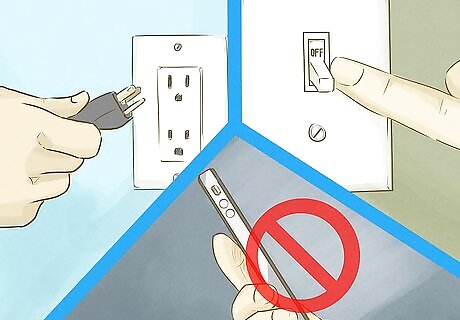
Turn off all visual stimuli at least an hour before bed. Though you may love watching television until you fall asleep, visual stimuli actually make it harder for you to fall asleep and to have a restful night of sleep. So, turn off the television, your computer, your cell phone, and any other screens other than the screen of your Kindle so that your body can begin to wind down.
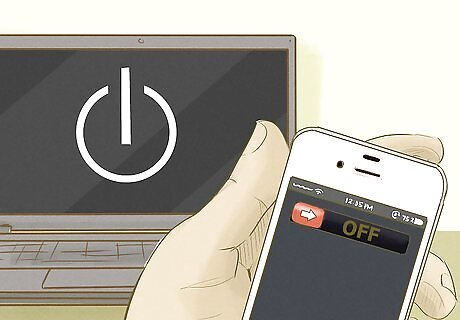
Don't do work in your bed. Don't write papers, do research, email your boss, or do anything work-oriented in bed or your wires will get crossed and your body will associate your bed with work and not sleep. Make sure to do all of your work in your workspace, which can be a desk or a home office. Ideally, you should avoid doing any work in your bedroom at all, but if that's not possible, at least avoid doing it in bed.
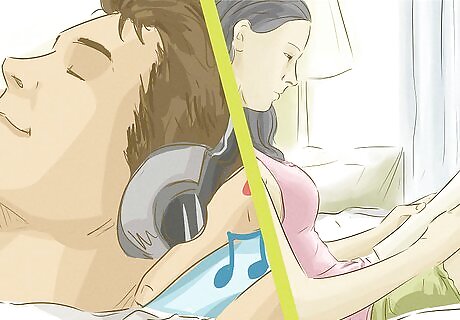
Have a winding-down routine. Find a winding-down routine that works for you and try to stick to it every night. It could mean drinking a cup of camomile tea, reading the paper, or listening to jazz. Find whatever works for you and stick to it as often as you can so that your body can begin to associate this routine with sleep. Your routine should begin at last an hour before sleep. It's difficult to move straight from work, or fun, into the world of sleep.
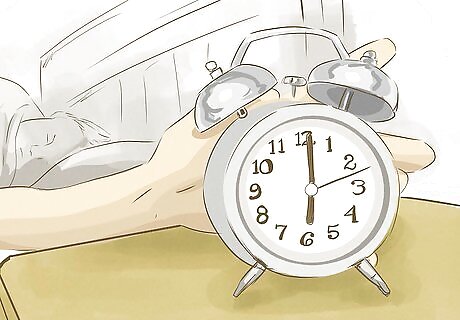
Go to bed and wake up at the same time every night. Though this may sound easier said than done, you should make an effort to go to bed around the same time and to wake up around the same time every night. In fact, getting eight hours a night two days in a row during two wildly different sleeping patterns will make you feel less well-rested than getting seven hours during the same time frame for two nights in a row. Try going to bed within the same hour range, at least. Say, go to bed between 10 and 11 pm and wake up between 6 and 7 am.
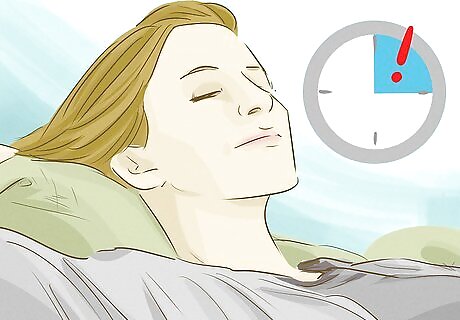
Follow the fifteen-minute rule. The rule is simple. If you're tossing and turning in bed and absolutely can't fall asleep after fifteen minutes, get up and do something that relaxes your mind, such as listening to classical music or reading. You can turn on a soft light to do this, but nothing too bright or you will make yourself even more alert. Try reading something slightly boring -- nothing that gets you even more excited.
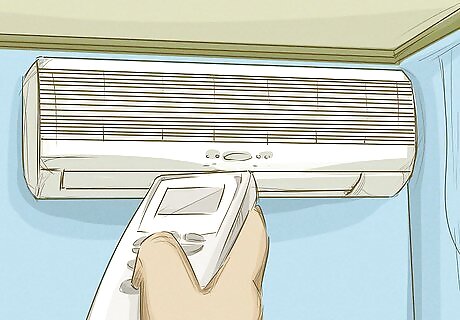
Lower the temperature before you fall asleep. Your body naturally lowers its temperature when you sleep, so the temperature of your environment should match your body temperature. So, before you go to bed, turn down the thermostat to at least 74 degrees; ideally, between 74 and 54 degrees. You can also crack open a window if it's chilly outside.
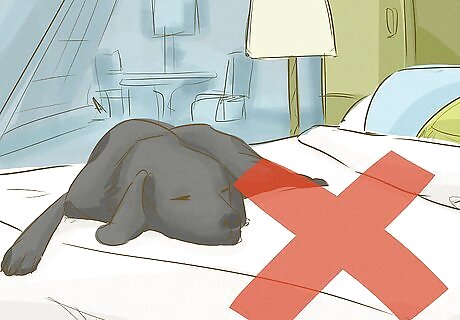
Stop sleeping with Fluffy the cat. You may love it when Fluffy the cat sleeps between your legs, but how about when he runs up and down the room, paws at your head, or knocks over your favorite necklace in the middle of the night? Over half of pet owners who let their pets sleep in the same bed as them report having disrupted sleep because of it at least once a night, so keep your beloved cat or dog out of the bedroom. If your pet is hurt by this development, just assure him that it only means you'll have even more energy for cuddling with him in the morning.
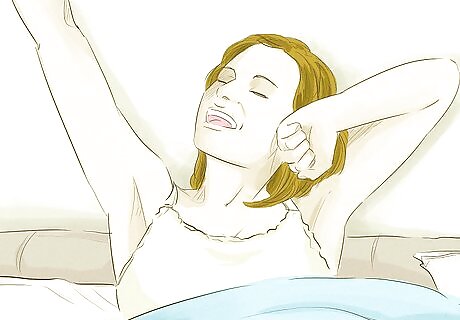
If you hit snooze, you lose. Don't hit the snooze button five times before you finally get up. Hit your alarm, stretch your arms high, and immediately take in a big gulp of air. After that, get up, get some fresh air, and start your day. Hitting your snooze button will only through you back into an unsatisfying, shallow sleep, and it will not only waste time, but it will make it harder for you to get up. If you really struggle with getting up without hitting the snooze button five times, then it may be a sign that you're chronically not getting enough sleep.
Daily Routine Changes
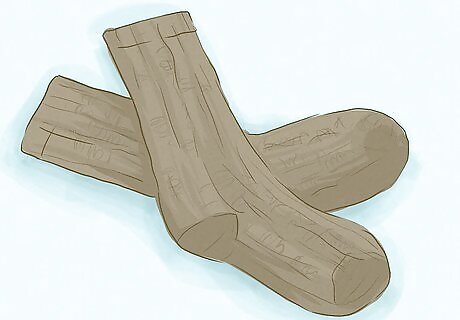
Change your socks in the middle of the day. That's right. Get in the habit of changing your socks before or after lunch. You'll be amazed by how much more alert, clean, and energized this will make you feel.
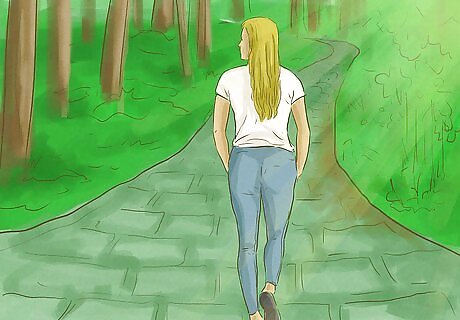
Go outside. This is especially important if you work in an office and spend most of your day at your desk. Take a break and go outside, breathe some fresh air, and let the sun hit your face. Spending just 20-30 minutes outside each day will have a dramatic impact on your energy level. And if you have some work to do that can be done outside, then bring it to the park. Of course, spending all day in the hot, hot sun could zap your energy levels and may make you more tired.
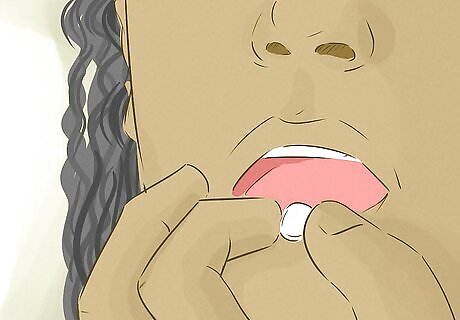
Eat your multi-vitamin at lunch. If you take a multi-vitamin (and you should), then your best move is to take it at lunch, with food, so that the small amount of energy in it helps give you an additional boost. If you take it with dinner, you'll be more likely to disturb your sleep.
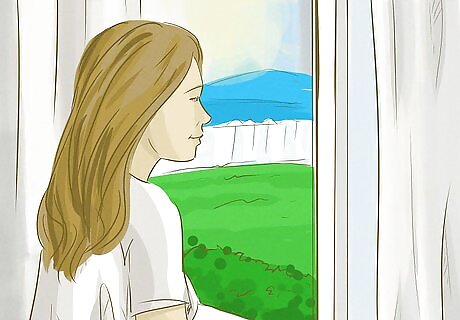
Let there be light. Turn on your lights when you get up, and spend some time in natural sunlight if you can. Any form of light will do -- it's been proved to make people more alert, energetic, and awake.
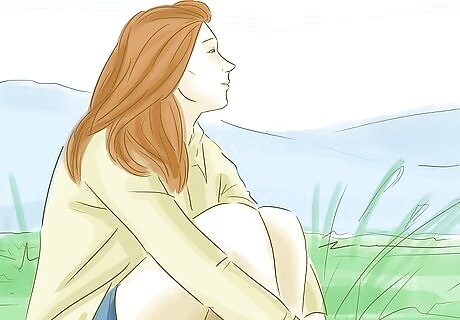
Take breaks every 90 minutes or less. Most people can't focus on one task for over 90 minutes, and that's okay. Don't try to force yourself to get a job done if you're feeling fatigued or like you just can't push yourself to finish it. Instead, take a 10-15 minute break every 90 minutes, or even every hour if you can, to help yourself gain energy, get some fresh air, and take a break from monotonous tasks. Ideally, do something moderately physical during your breaks, like taking a short walk. Additionally, you can do something social, like a chat with someone in your office, to make your mind more alert.

Dress up. Dressing nicer is more likely to make you take yourself seriously and to feel more alert. This doesn't mean you have to dress to the nines if you're home alone. But putting on nice jeans a well-fitting t-shirt will make you feel more alert than if you're wearing sweatpants around the house. When you feel your energy draining, try reaching for that favorite piece in your wardrobe. Wearing your favorite item can elevate your mood, which in turn gives you more energy. If you're going out, wear bright colors. These colors will project your energy outward and will make people respond to you in a more energetic way.
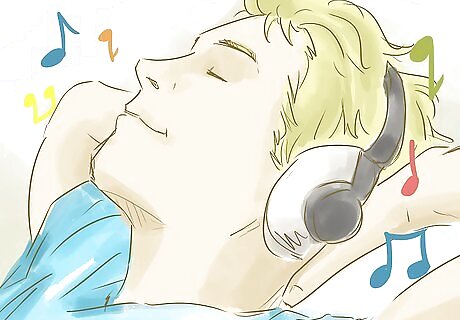
Put on your favorite song. If you're really feeling tired, nothing will wake you up better than your favorite tune. Put it on, get out your air microphone, and get your groove on to the music.

Get social. Talking to people will make you more energetic and alert. Don't just sit through a business meeting or a class; ask questions that make you more actively engaged and wake your mind up. Meet up with friends in the evening to get talking and thinking more; call up a friend to get an energy boost in the afternoon. When you're at work, get up and ask your co-worker a question instead of emailing him; the walk and the conversation will wake you up. Make a point of adding a social element to your weekly routine, no matter how tired or busy you may be.
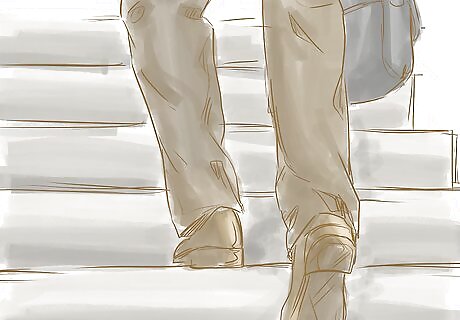
Get some exercise. Make sure to get exercise for at least 30 minutes a day. This will make you happier and more energetic. Just make sure to exercise in the afternoon or morning; if you work out in the evenings, it may keep you awake longer. Any form of exercise will help raise your energy levels, as long as you don't overdo it. Get moving any way you can. Take a short walk, take the stairs instead of the elevator, and walk to the bathroom on a different floor of your office building, if you have to. Make sure to make physical actions a daily part of your routine. Even making an effort to walk 20 minutes instead of driving each day can make a big impact on your energy levels. Do yoga. Yoga is known to have a positive impact on your energy levels. Stretch, even if you're not working out. Stretching wakes up the muscles and will make you more alert. It's also something you can do right at your desk.
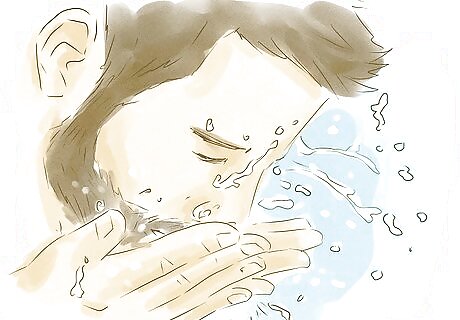
Splash cold water on your face. If you really feel like you're falling asleep and don't want to slap yourself awake, slash some cold, refreshing water on your face. This will make your senses more alert and will wake you up quickly, no matter where you are.
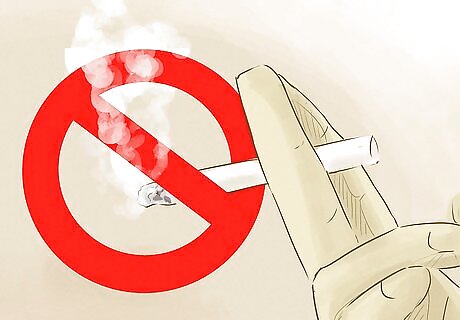
Quit smoking. Smokers who quit report a 2-3x improvement in their overall energy levels. You may think that nicotine gives you a small buzz that makes you more energized, but smoking actually leads to fatigue. So if you're a smoker, quitting will have a positive impact on your energy level -- not to mention your overall health.

Smell lavender. Have a lavender plant or lavender lotion on hand so you can smell it in moments of need, or just because. It's been known to help students perform better on tests, and it has the power to make you more energetic throughout the day.
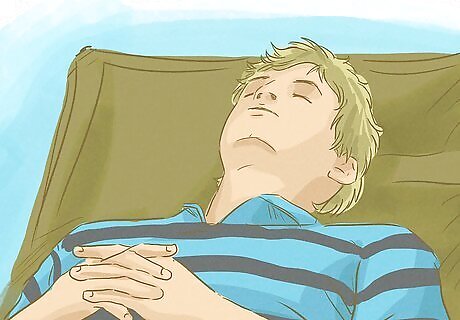
Take a power nap if you need one. Just napping for 15-20 minutes during the day when you're really feeling tired can make you feel much more alert, energetic, and ready to face the world. If you're feeling tired, then shut everything down and take a brief nap with your eyes closed and your hands resting at your sides. Just make sure you don't take a long nap; sleeping for over an hour during the day can temporarily make you feel better, but it can actually make you more tired and less energetic as the day goes on.



















Comments
0 comment